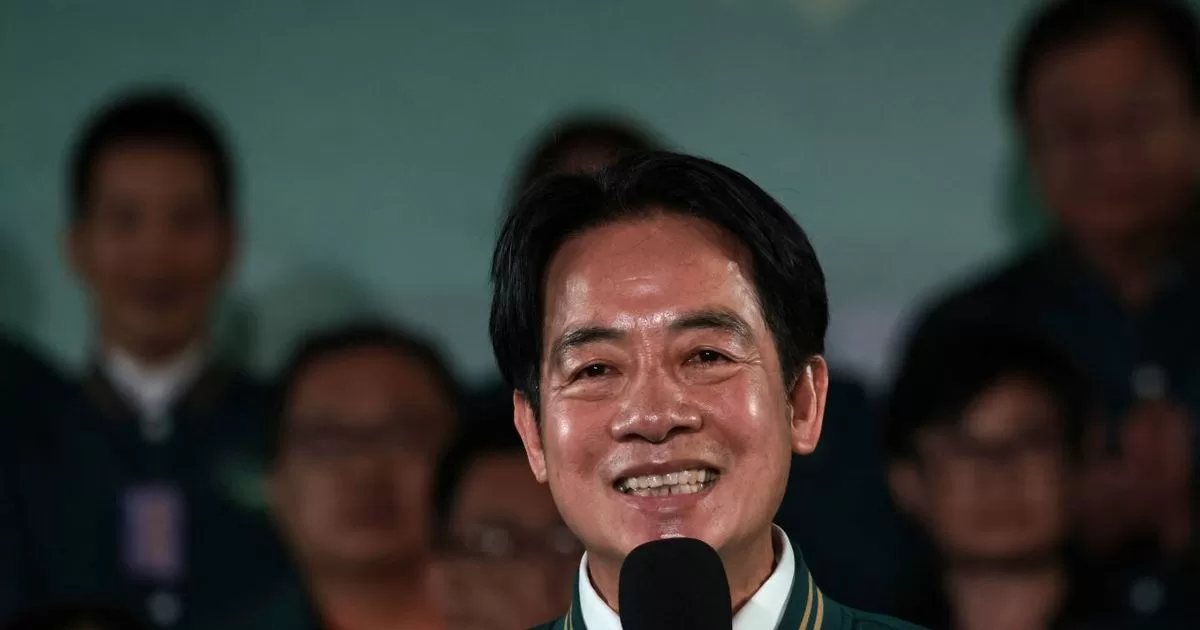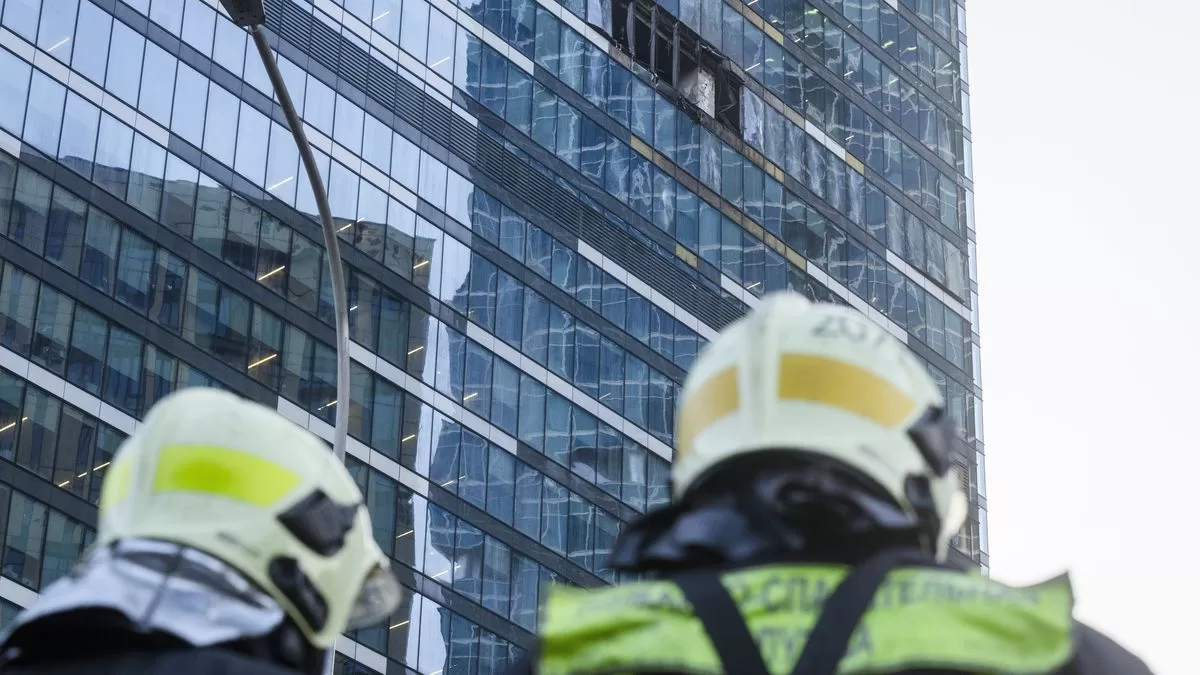Lai, current vice president of President Tsai Ing-wen (in power since 2016), obtained 40.1% of the votes, according to the almost final count of the Central Electoral Commission, with which the Democratic Progressive Party (DPP) achieved a third consecutive term.
These elections were held in the shadow of threats from China, the communist Asian power and second largest economy in the world, which considers this island to be part of its territory and has never stopped proclaiming its intention to “reunify” the country, by force of be necessary.
“We are determined to protect Taiwan from China’s continued intimidation and threats,” Lai Ching-te said in his victory speech.
Bet on democracy
“We are telling the international community that between democracy and authoritarianism, we will be on the side of democracy,” added the politician, who will assume the presidency in May.
His main adversary, Hou Yu-ih, of the Kuomintang (KMT), who advocates a rapprochement with Beijing, admitted defeat and stated that he respects “the final decision of the Taiwanese people.”
China, which before the elections described Lai as a dangerous “separatist”, said after the results were announced that the vote “will not hinder the inevitable trend towards reunification” of the country.
“We (…) will firmly oppose separatist activities aimed at Taiwan’s independence as well as foreign interference,” said Chen Binhua, spokesman for the Chinese office responsible for relations with Taiwan.
More threats
The Chinese army promised on Friday to “crush” any attempt at “independence” by Taiwan, located 180 km from the mainland.
Taiwan and mainland China have been de facto separated since 1949, when Mao Zedong’s communist troops defeated nationalist forces, who took refuge on the island and imposed an autocracy that became a democracy in the 1990s.
These elections were closely followed by both China and the United States, Taiwan’s main military ally, as the two powers compete to expand their influence in this strategic region of the planet.
The head of US diplomacy, Antony Blinken, congratulated Lai and Taiwan for their “solid democratic system.” But US President Joe Biden reiterated Washington’s traditional position and stated: “We do not support the independence” of the island.
The United States supports Taiwan, but maintains full diplomatic relations with China, which demands that the countries with which it establishes relations break with Taipei.
The European Union congratulated “all the voters” who participated in “this democratic exercise.”
No parliamentary majority
Lai, 64, promised during the campaign to continue the path of President Tsai Ing-wen, who governed two terms (2016-2024) marked by increasing diplomatic, economic and military pressure from Beijing.
“I trust that the new leaders will follow Tsai’s path and I hope they can safeguard Taiwan’s democracy,” said Grace, a 21-year-old who celebrated Lai’s victory at the DPP headquarters.
At his rallies, Lai presented himself as the defender of Taiwan’s democratic lifestyle, which his PDP party already considers to be a de facto independent state.
The sovereigntist positions of Lai and President Tsai are criticized by the Kuomintang opposition, which accuses them of irritating China.
Against these two parties that have alternated power since the beginning of Taiwanese democracy, the People’s Party of Taiwan (PPT), presented itself as a “third way” and its candidate, Ko Wen-je, obtained 26.4 % of the votes.
In addition to choosing a president, the Taiwanese renewed their Parliament and in the legislative elections the ruling party lost its majority.
The KMT opposition obtained 52 seats, the ruling party 51 and the TPP eight legislators, plus two independents.
The elections seemed to spark interest on the Chinese social network Weibo, where the hashtag “Taiwan Elections” became one of the most popular, before being blocked.
The island is key to the world economy, both for its strategic position between the South China Sea and the Pacific Ocean and for its leading semiconductor industry, essential components in phones, cars or missiles.
In recent years, China has increased military pressure on the territory, launching large-scale maneuvers that have stoked fears of an invasion.
It also intensified its diplomatic campaign to isolate Taiwan, now officially recognized by only 13 states after countries such as Honduras and Nicaragua broke relations with Taipei to establish them with Beijing.
Source: With information from AFP



